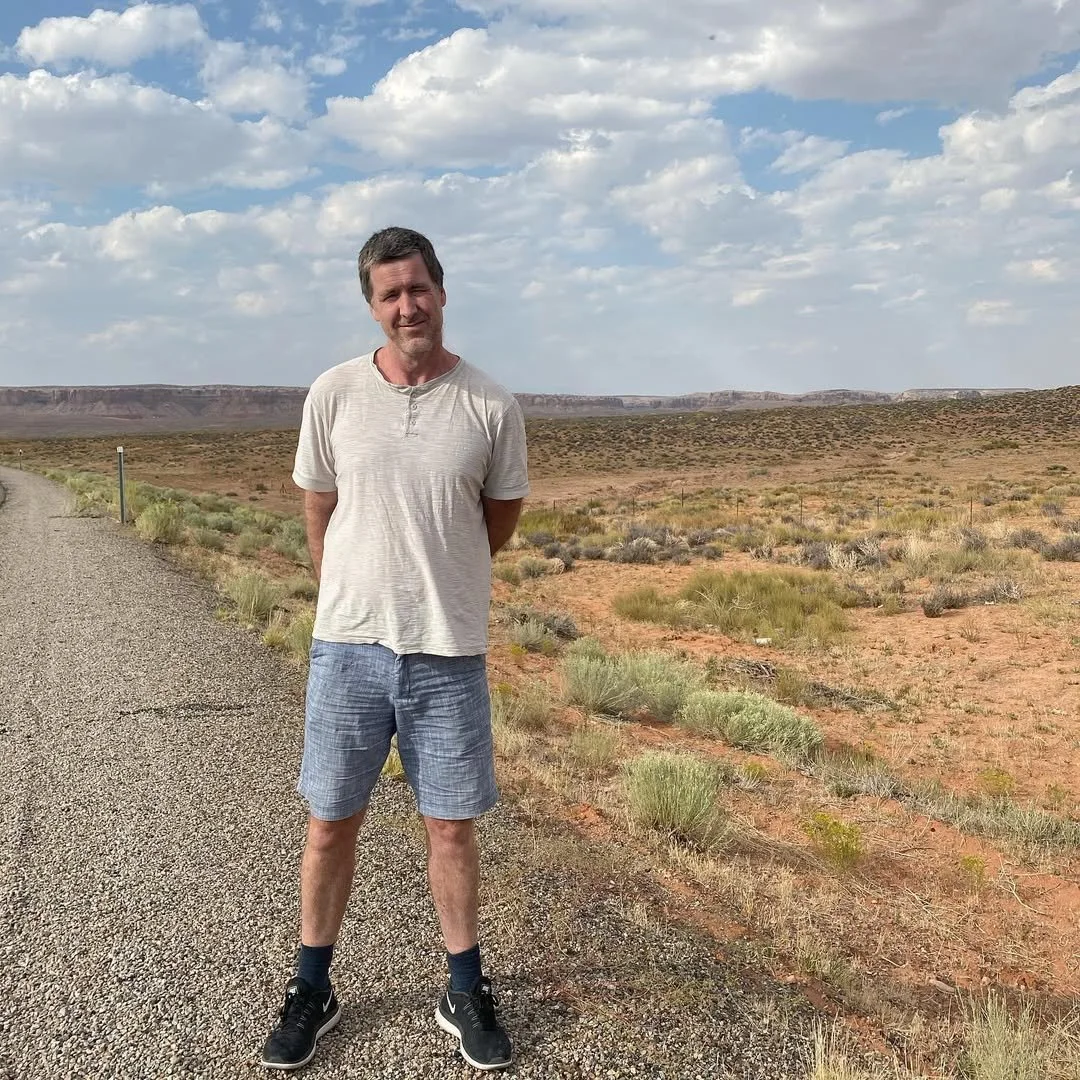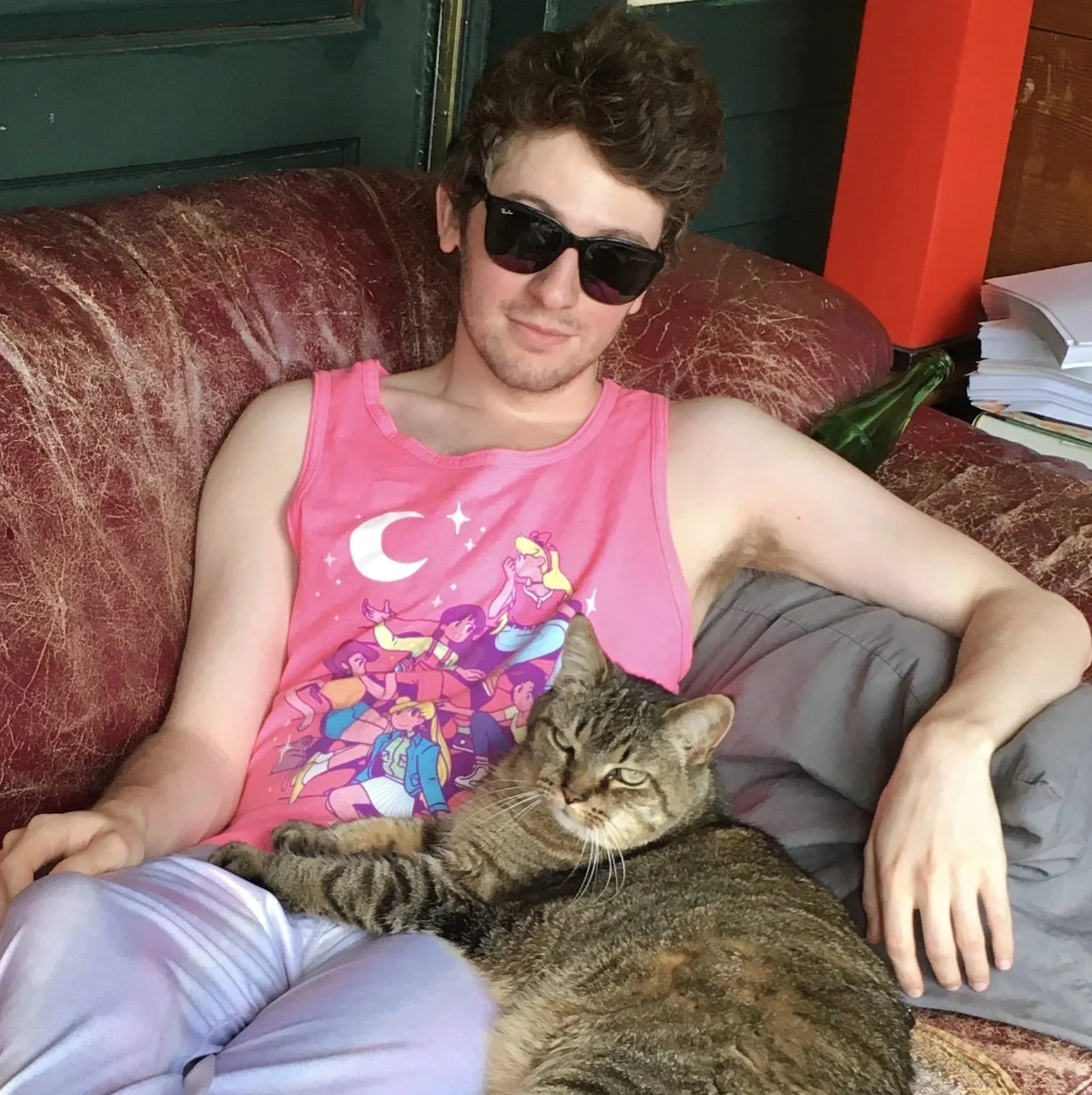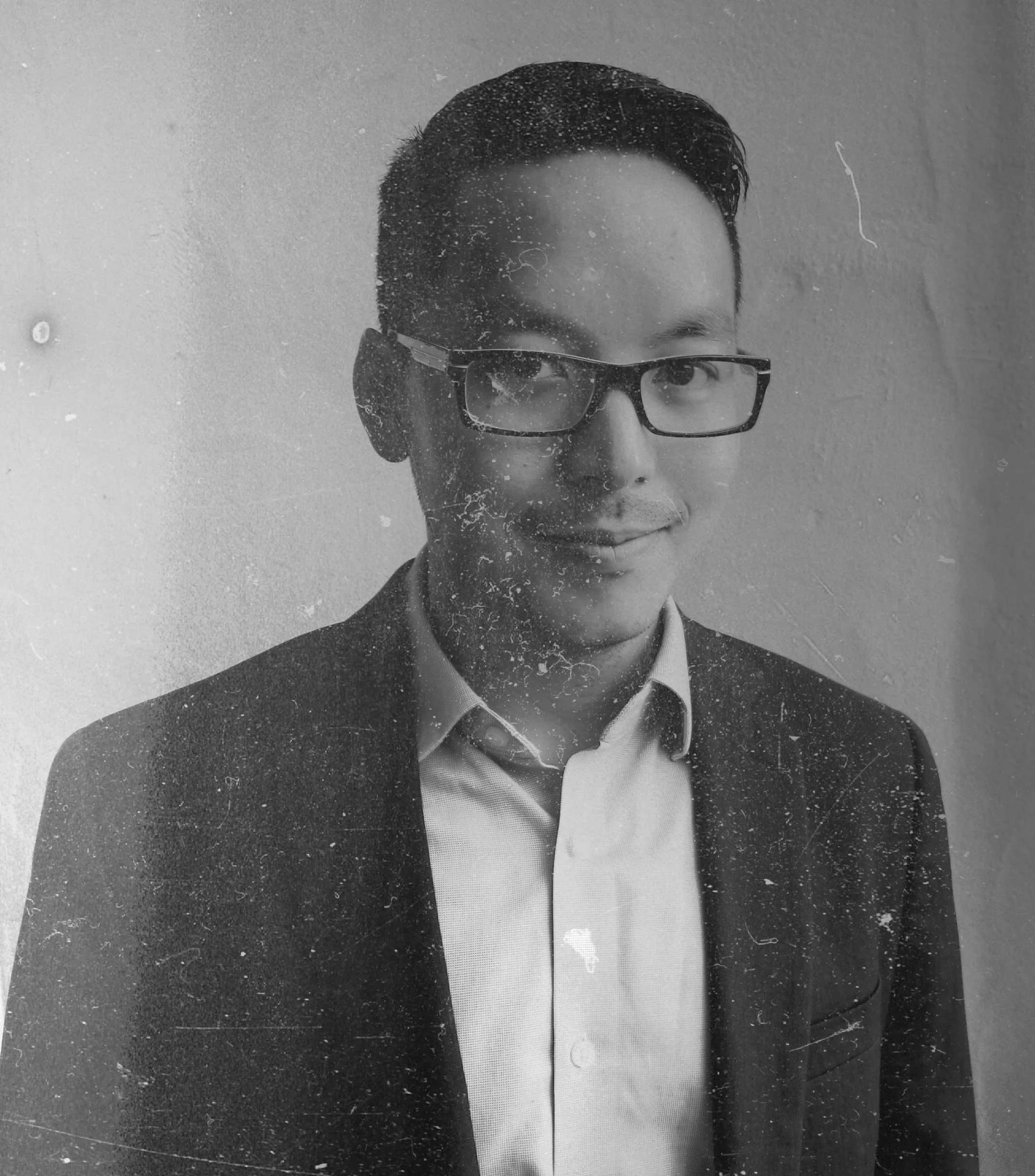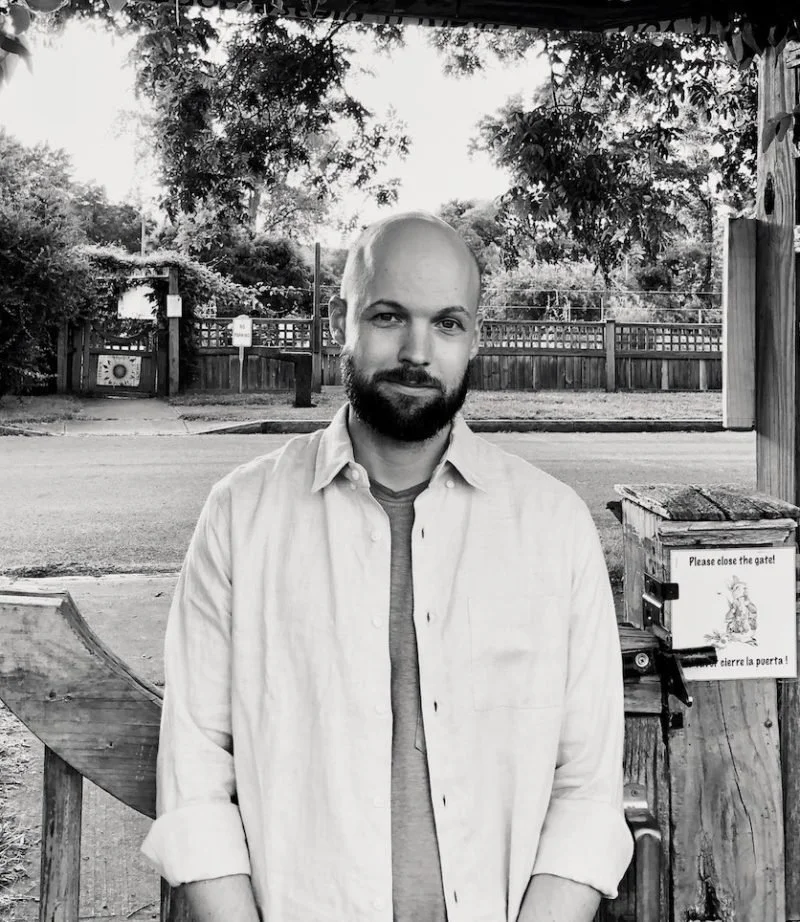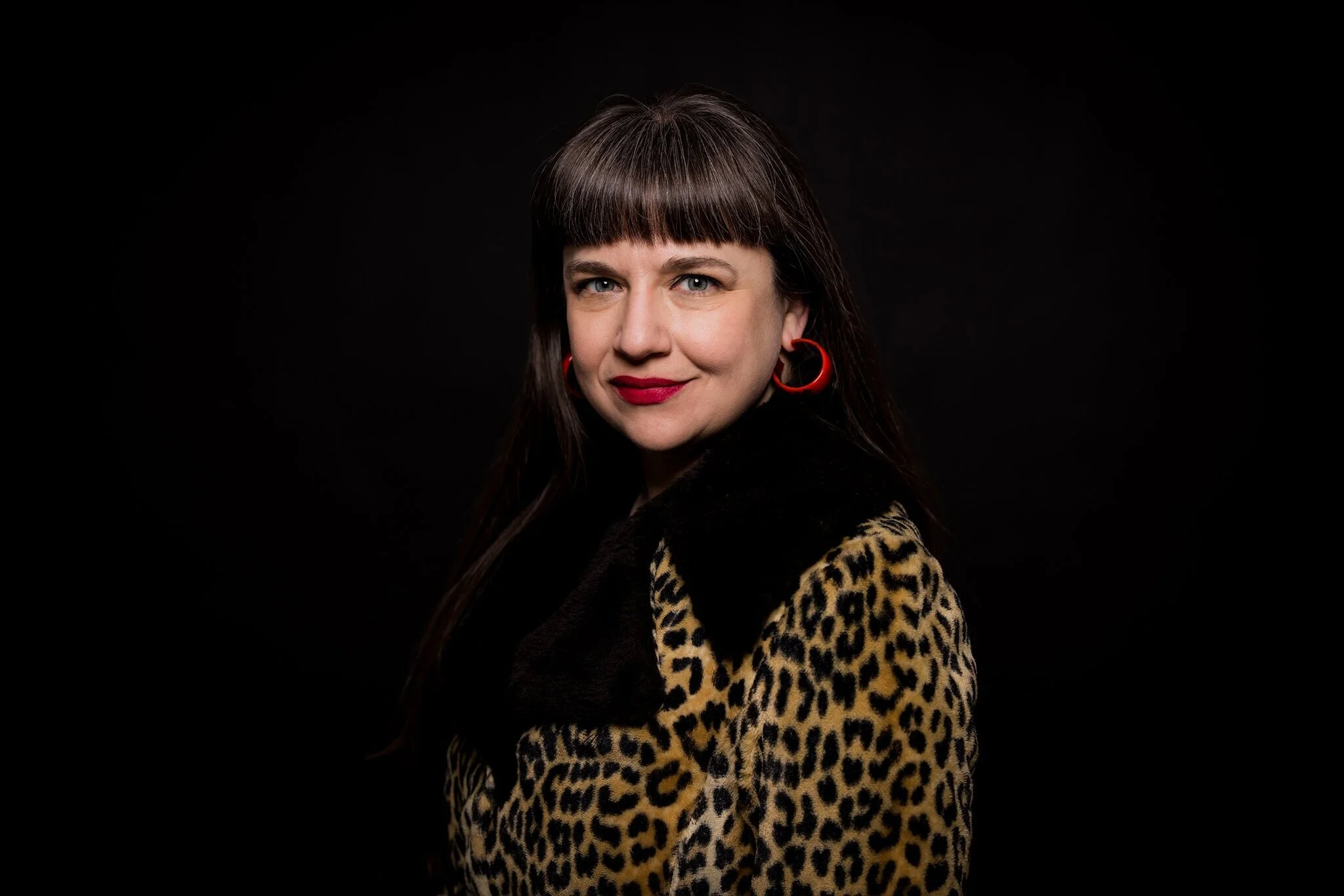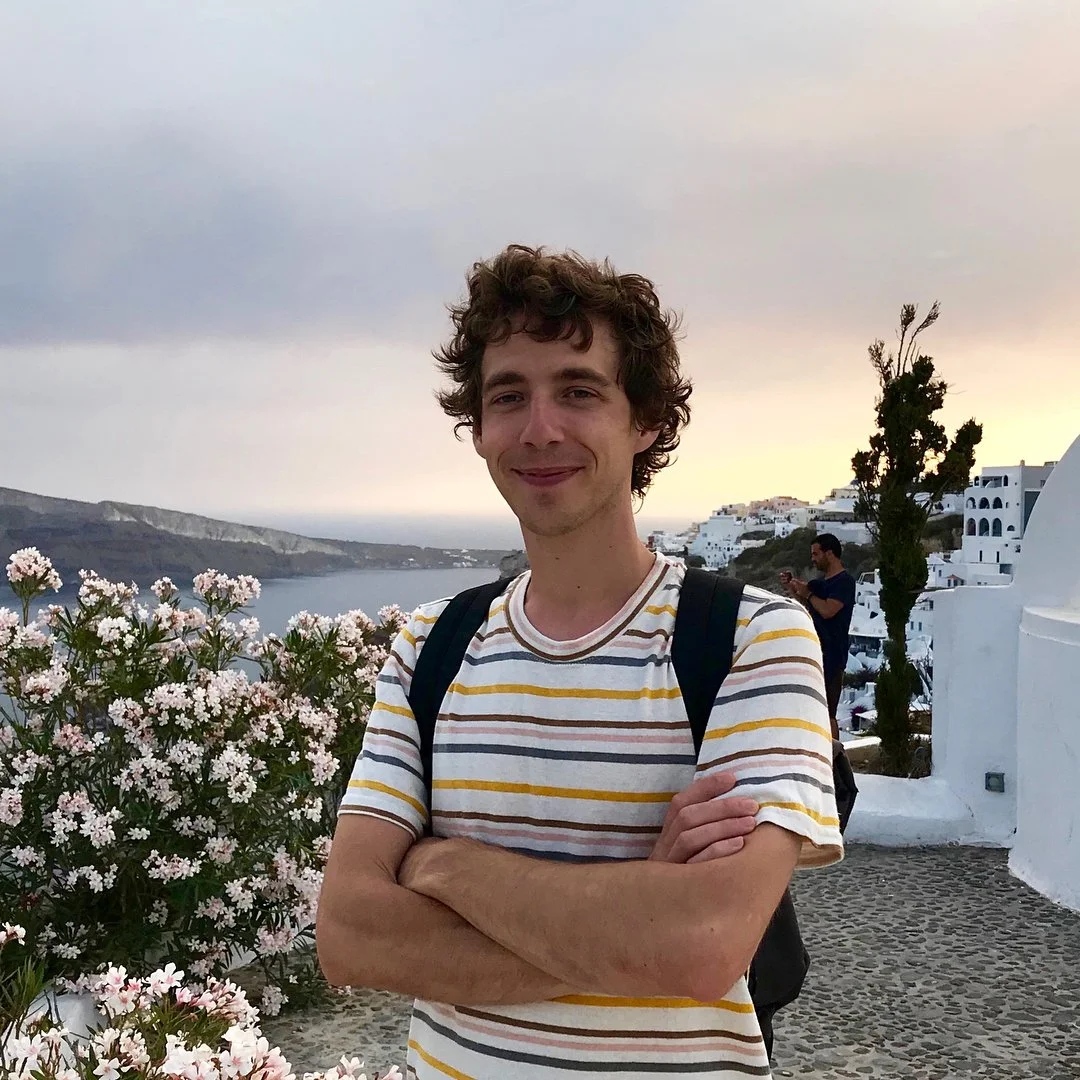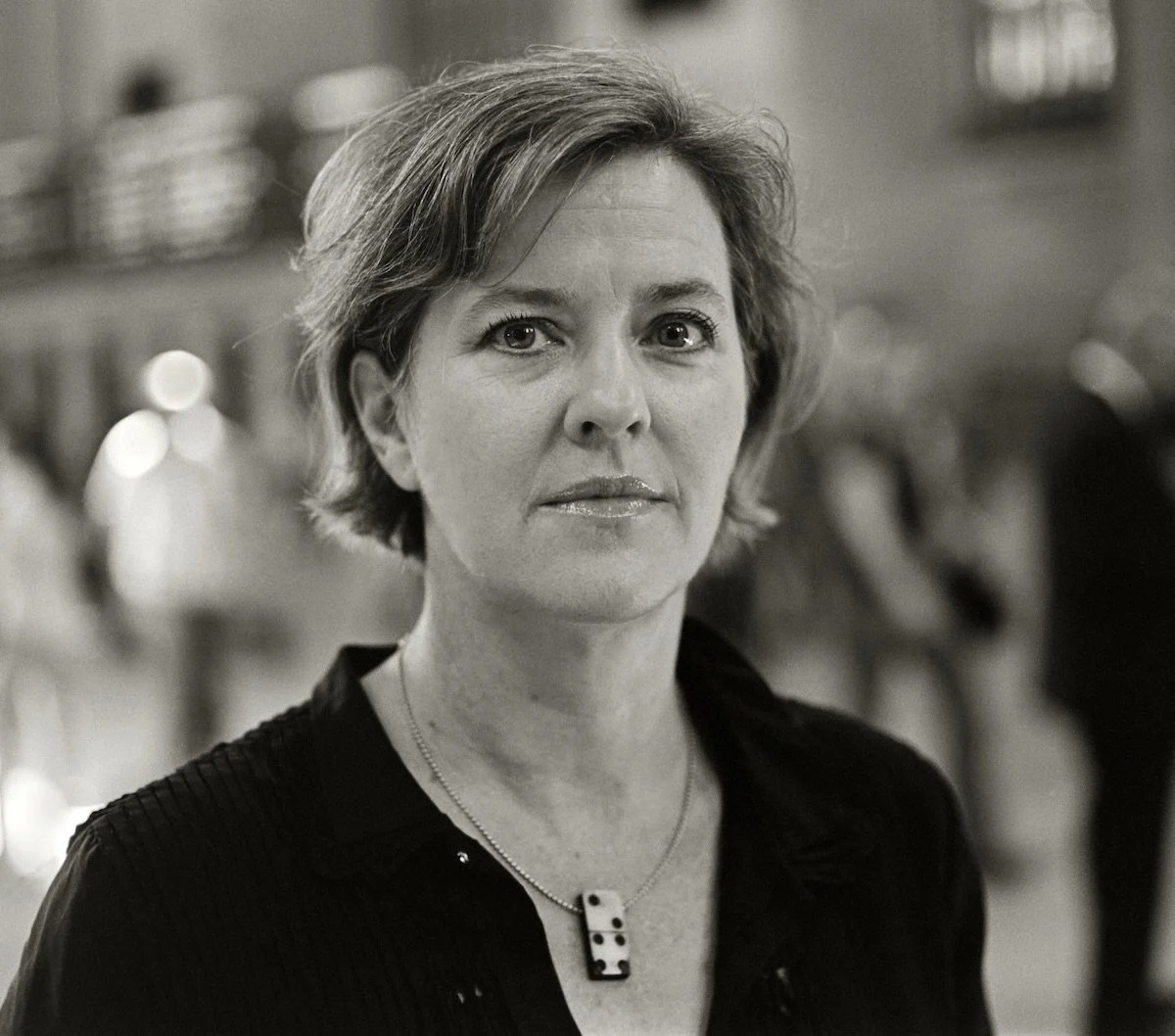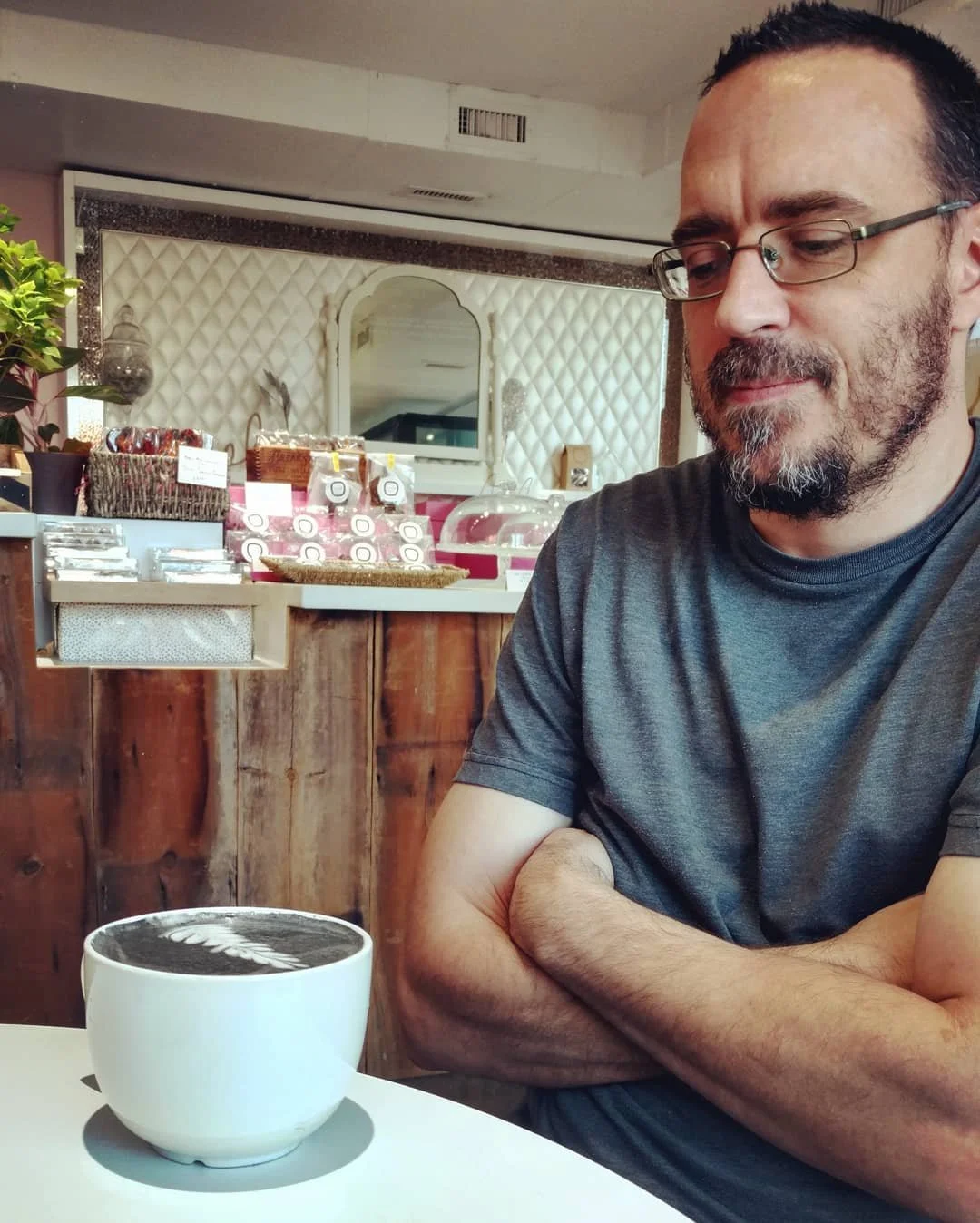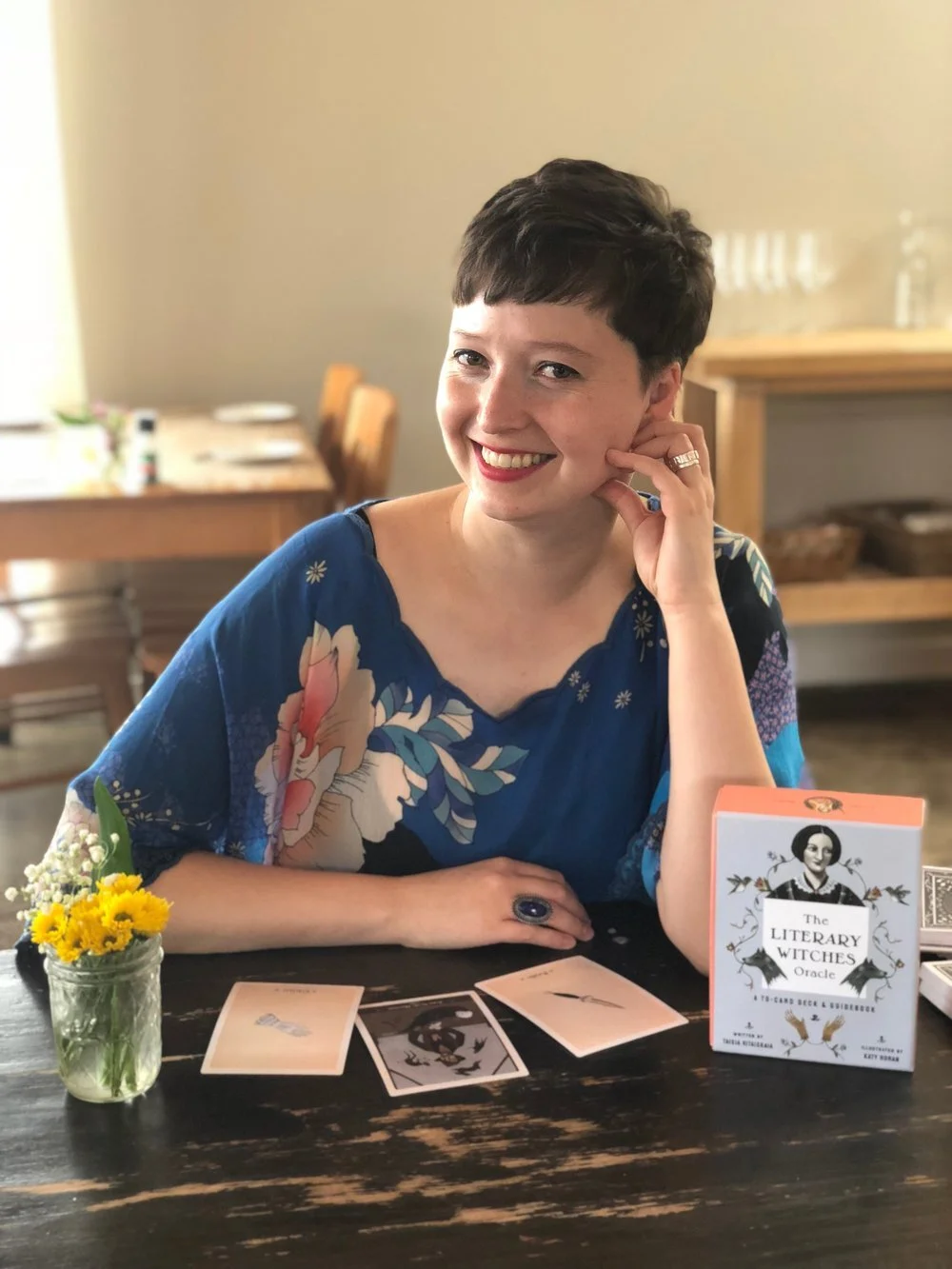Babak Lakghomi is the author of one novel (South via Dundurn Press, 2023) and one novella (Floating Notes via Tyrant Books, 2018). A master of the compressed paragraph, his sparse yet dense writing has appeared in American Short Fiction, NOON, Electric Literature, Fence, and more. Born in Tehran and living in Toronto, Lakghomi’s writing toes the line between hazy daydream and surrealist nightmare. It’s fragmented, controlled, highly restrained, and often leaving you with more questions than answers.
His newest book, 2023’s South, is a surrealist masterpiece, one I finished in two days. The atmospheric pacing and amnesiac elements felt like hallucinating while reading. Like Diane Williams mixed with Brian Evenson, Garielle Lutz mixed with Cormac McCarthy, Lakghomi’s snapshot style twists and turns and guarantees to send the reader down a rabbit hole of inner turmoil and outward concerns. Corresponding over email, I had the privilege of chatting with him about his newest novel, his writing process, the focus on the short form, juggling a day job, his interest in film, and much more.
Congratulations on writing and publishing such a wonderful and unique novel. It's a masterclass on atmosphere and showcasing disorientation on the page. What was the process like working on South? Can you take us through the steps/drafts?
I had a general idea of the main character and the setting from the beginning, and I started writing with those in mind. But many of the formal decisions as well as the other narrative threads were shaped during the writing process and in later revisions. I usually go back and edit from the beginning as I am adding to the manuscript. So, everything is constantly in flux, and the text itself helps to define the next steps.
Once I had more of a complete draft, I showed it to a few friends before sending it to my editor Giancarlo DiTrapano at Tyrant (where the book was initially supposed to be published). There were a few rounds of edits after getting feedback from friends and Gian. I did more revisions once the book was acquired by Dundurn Press and they suggested changes to the ending.
Did South arrive after Floating Notes was finished or was there some overlap between these two? I know some writers work on one book/idea at a time, while others tend to juggle.
South started after Floating Notes was finished and published. But I did work on some other projects in between.
I love the feeling of South's woozy surreality. Reading it felt like hallucinating or having amnesia. The novel form is so often concerned with explaining (and over explaining) yet this book leaves the reader with even more questions as it progresses through its fragmented instability. Can you talk a bit about this process of writing something so unstable/uncertain and hazy?
I guess part of it comes from my more general resistance against oversimplification and explaining. As a reader, I am more interested when the communication is more through images, sound, and syntax, as well as other formal choices. In my view, the explaining takes away from experiencing the work of art on its own terms and moves it toward prefabricated clichés.
In this case, I was also trying to capture the state of narrator’s mind. Part of the lack of certainty is due to the state limiting the narrator’s access to information and part of it is due to the conditions imposed on him on the rig. So I wanted the reader to experience this uncertainty and navigate the same hazy landscape as him.
via South
In a past interview, you mention Ice by Anna Kavan as being a kindred spirit for South, and I also think of the more apocalyptic-leaning writing of Brian Evenson. Were there other writers who inspired the words in South? Other novels you can point to that you feel might be in conversation with your novel?
I think the writing of Brian Evenson has been very important to me. Other writers that were influences on this book were Christina Rivera Garza (The Taiga Syndrome), Kafka, Jesse Ball, and Antonio DiBenedetto (Zama). There were some other books that were important in regard to the formal considerations such as Maggie Nelson’s Jane.
While your writing is in English, it reminds me of the translated world of Dalkey Archive and Deep Vellum, as well as the more experimental releases by Calamari Archive. I know you read far and wide when it comes to international texts, and that you were born in Tehran. Does reading translated novels / experimental literature inform your own writing? This is probably an obvious 'yes' answer, but I'd love to hear more on your reading and your tastes and how that's sculpted your own aesthetics.
A lot of my reading involves books that are interested in pushing boundaries in some ways, and interestingly, a lot of those books are in translation or from smaller presses. And to answer your question, yes, my reading informs my writing to a great extent. I’d like to write something that excites me as a reader.
You released a novella in 2018 and a novel in 2023. During this time, were any other novels or ideas scrapped or left on the drawing board?
I started another novel and abandoned it between the two books. I also wrote some short stories during this period.
Despite writing in the novel and the novella form, your work is often fragmented and compact/concise. I know you've written numerous short stories, but have you ever dabbled in poetry or prose poetry?
I have tried poetry a bit in the past, but I have never pursued it that seriously.
Speaking of short stories, your pieces have appeared in NOON and X-R-A-Y and Neutral Spaces and Post Road and many others. Some of my favorite places for finding and reading new fiction. Do you have a short story collection in the works? Do you see these pieces as being in conversation with one another, linked in some kind of way, or standalone and on their own?
I have written many short stories, but I weren’t thinking of them as a collection when writing them. Maybe because I have written them in different periods with different interests. But looking back, there are groups of stories that are in conversation with each other in ways. So, it’d be possible to group some of the stories together.
In your interview with 15 Questions, you say, "As a person, I always prefer saying less over saying more, silence and mystery over wordiness. I think that happens on the page as well." Can you elaborate more on this when it comes to your writing? You've cited enjoying writers of lengthier fictions like Bolaño and McCarthy, yet also short fiction legends like Diane Williams, Lydia Davis, and Garielle Lutz, and you seem to be most comfortable in the short and concise. Do you see yourself ever tackling a 400+ page novel? Or is short fiction and the short novel more of your comfort zone / wheelhouse?
I think I am more drawn to writing in short form, fragments, and short novels. But I have tried to write longer short stories and considered writing a longer novel. I don’t think I’ll ever write something that is more than 400 pages. With someone like McCarthy or DeLillo, I feel like they can create a more expansive universe without sacrificing what happens at the language level. Something that I am able to appreciate a lot as a reader, but I am not sure if I am able to achieve.
via South
I have a similar preference where I write in tiny vignettes and snapshots, and while I've attempted to break from that mold, it doesn't seem possible. When writing the novel form, do you work in brief spurts, writing chronologically, or is it more of a mosaic/collage assemblage that happens in the editing period?
With Floating Notes there was more of an assemblage of different vignettes about the same narrator and another character, but with South I had more of an idea of the plot and how things will proceed from the start, so there was kind of a chronological progression in the scenes that I was writing.
Do you still maintain a full-time job unrelated to writing? How do you divide time between the two? In a past interview, you said focusing on writing an hour before work, and on the weekends. Is this still the case? Do you have a routine/discipline or is it more a matter of squeezing in time when/where you can?
Yes, I still have a job unrelated to writing. I wake up early in the morning to write, so I do have that as a routine. But I also try to squeeze in time when possible. I think the routine of writing everyday works well for me. Especially writing when there is little distraction from other life events. It feels important to carve that time and space that is dedicated to writing.
Now that South is almost a year old, are you working on any new writing? Any novel(la)s or stories in the works?
I am right now focusing on a manuscript based on vignettes from my early life and youth about family and life in Iran. There is another novel in progress that happens in a mythical desert where people start to forget their own language and talk in a new tongue.
Outside of your own work, what are some recent reads that you have enjoyed?
I really enjoyed Death in Spring by Mercè Rodoreda and My Dead Book by Nate Lippens. I have been reading Backwardness by Garielle Lutz and having a lot of fun with it.
I'll ask the same question, but in regards to recent movies and/or music. What are some films or albums that you'd recommend?
Two movies I enjoyed watching recently were Microcosmos (1996) and Pixote (1980).
If you can, provide a photo of your workspace. What are some essentials while you create?
Coffee and water.
For this ongoing author interview series, I'm asking for everyone to present a writing prompt. It can be as abstract or as concrete as you choose.
Write a story in two paragraphs based on the below image.
In closing, do you have any advice for early writers? Or rather, what's something that keeps you returning to the page?
I think reading is what really excites me and makes me return to my own writing.








